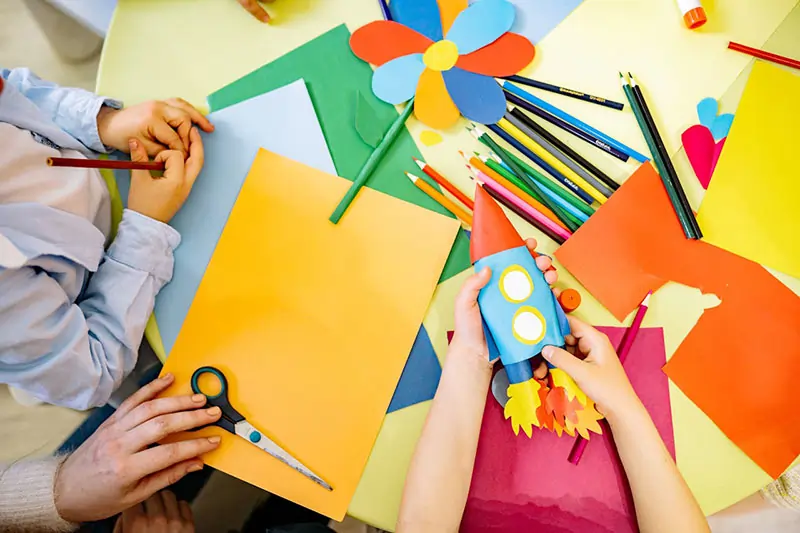Creative Hobbies That Spark Kids’ Imagination Beyond Screens
Screens are everywhere, and while they can be entertaining, children need more than pixels to grow their imagination. Creative hobbies give them space to build, explore, and dream without limits. Whether it is crafting, building, or racing an RC rock crawler over backyard rocks, these activities encourage children to think differently and play with purpose.
They are not just enjoyable. They spark curiosity, teach patience, and allow children to take charge of their own adventures. In this post, we will explore hands-on hobbies that inspire creativity beyond the screen. If you are ready to see your child light up with new ideas, you are in the right place.
Off-Road Adventures: Remote Control Rock Crawlers and Outdoor Exploration
There is something special about watching a remote control rock crawler climb over dirt, rocks, and sticks in the backyard. It is not only about driving a toy. It is an adventure that draws children outdoors and into a world of hands-on fun.
RC rock crawling teaches far more than steering. Children learn how to handle rough terrain, make quick decisions, and even tinker with the mechanics of their crawler. It is a hobby that builds real-world skills while fuelling their imagination.
They might picture themselves exploring a mountain trail or navigating a rescue mission in the wild. The best part is that it gets them off the couch and into the fresh air. Brands such as Frontline Hobbies for rc rock crawler models provide a wide range of customisable options that captivate children’s interest and inspire outdoor creativity.
Every small modification, such as changing the tyres or adjusting the suspension, improves the crawler’s performance and keeps young hobbyists engaged. This is more than screen-free play. It is a practical way to boost creativity, confidence, and problem-solving, all while having fun. For parents wanting to add adventure to playtime, RC rock crawling could be the perfect choice.
DIY Arts and Crafts Projects That Tell a Story
Children do not need screens to tell stories. They only need some glue, paper, and a spark of imagination. Building a diorama, creating a puppet, or drawing a comic book are DIY projects that let them turn ideas into something tangible.
When they create a miniature scene from a favourite story or invent characters for a puppet show, they are weaving their own narrative. Crafting like this is not only enjoyable but also helps them solve problems, build fine motor skills, and express their thoughts in creative ways.
When children complete something they are proud of, such as a cardboard spaceship or a hand-drawn comic, they gain confidence. These low-tech creative activities encourage storytelling and provide a satisfying sense of accomplishment.
Backyard Science: Simple Experiments with Big Imagination
Children are natural scientists. Give them a messy volcano or a homemade weather station and watch their curiosity grow.
A classic vinegar and baking soda volcano is colourful, quick, and thrilling to make. As the baking soda reacts with vinegar, it creates a bubbly eruption that captures attention and sparks questions about why it happens.
Another engaging activity is setting up a DIY weather station with a rain gauge, wind vane, or thermometer. Simple tools like these allow children to record real data and observe patterns in the sky, making them feel like junior meteorologists.
Pairing these activities with a plant growth journal, where they plot how a seed changes each day, combines creativity with science. It is hands-on learning that makes the world feel bigger and helps children see themselves as active explorers of their environment.
Storytelling and Puppet Theatre: Bringing Characters to Life
Children have the power to bring stories to life with only a few props and their imagination. When they invent characters and scripts and then act them out with puppets, costumes, or cardboard cut-outs, something magical happens.
This is more than play. It is storytelling in action. Puppet theatre encourages children to explore new words, build confidence, and develop their voice. Whether they create a comedy or narrate a fairy tale, they are improving language skills and creative thinking.
As they assign voices, move the characters, and build scenes, children expand their imagination and start to understand how stories work. Even shy children often find comfort in letting the puppet speak for them. Puppet theatre is simple and hands-on, allowing them to become the storytellers of their own show. You can find a wide collection of short stories written by schoolchildren here.
Building and Engineering with Everyday Materials
Gather some LEGO bricks, cardboard boxes, and household odds and ends, and you have the ingredients for an open-ended building adventure. Children are doing more than just playing when they construct cardboard forts, stack blocks, or design makeshift towers.
They are learning spatial awareness, fine motor control, and problem-solving skills. When a creation collapses, they learn perseverance. When they rebuild and improve a design, they spark creative thinking and gain valuable experience with balance, symmetry, and geometry.
Cardboard, in particular, inspires limitless imagination. From pretend shops and rockets to secret hideaways, children can transform simple boxes into extraordinary creations. These projects encourage experimentation, help them understand how things fit together, and boost confidence with every success.
The next time you are about to clear clutter, hand over those recyclables and let your child engineer something new. Their world instantly becomes more creative.
Let Imagination Lead the Way
Children do not need fancy gadgets to grow. What they need is space to imagine, build, and explore. Creative hobbies such as RC rock crawling, crafts, backyard science, storytelling, and DIY building provide exactly that. These simple activities inspire big ideas, develop practical skills, and bring joy that lasts well beyond the screen.

